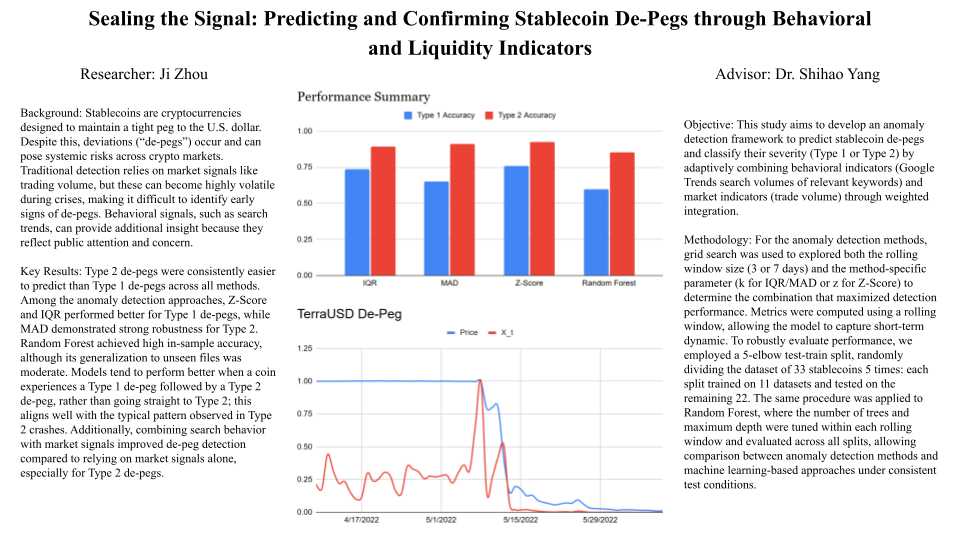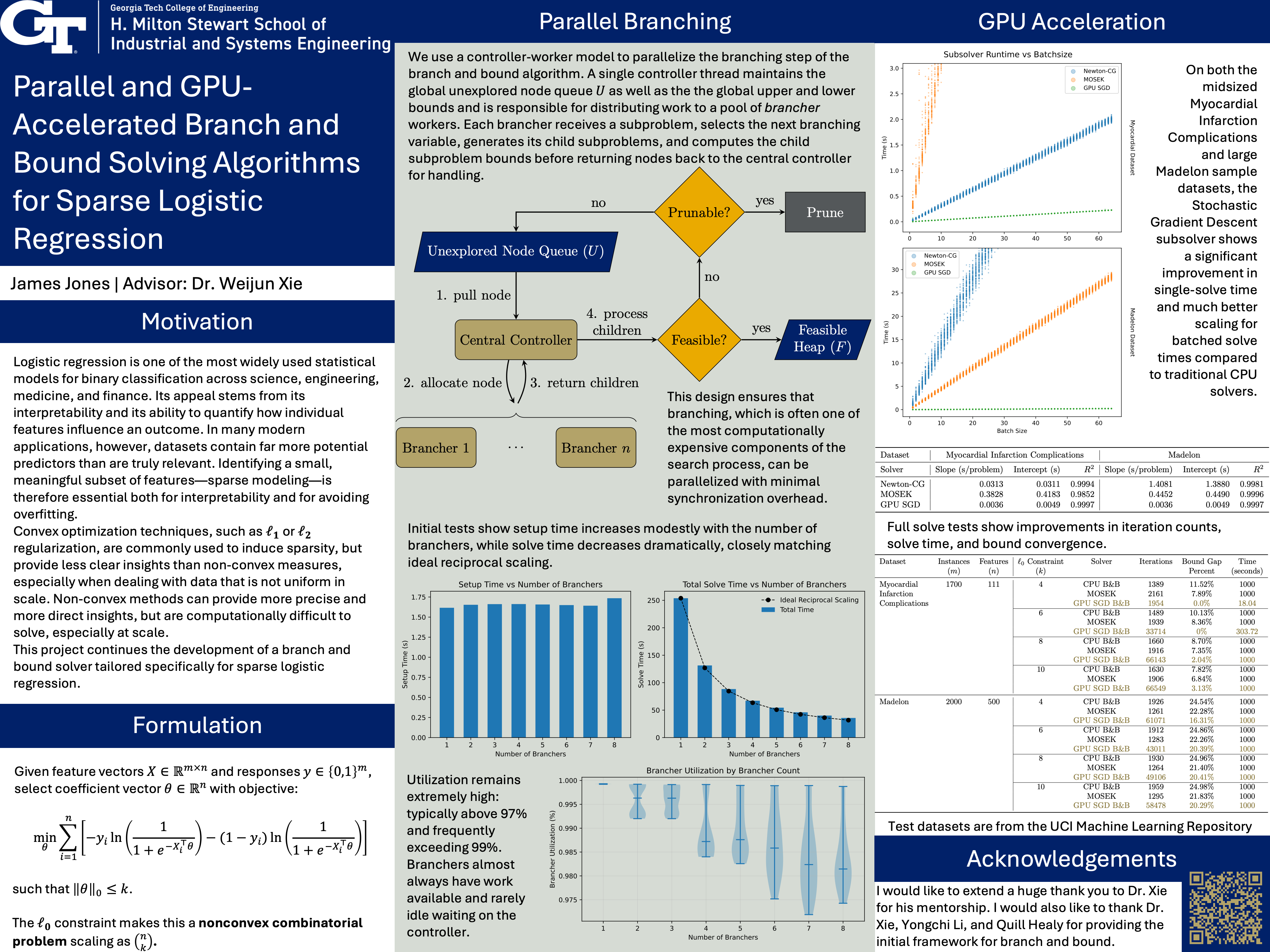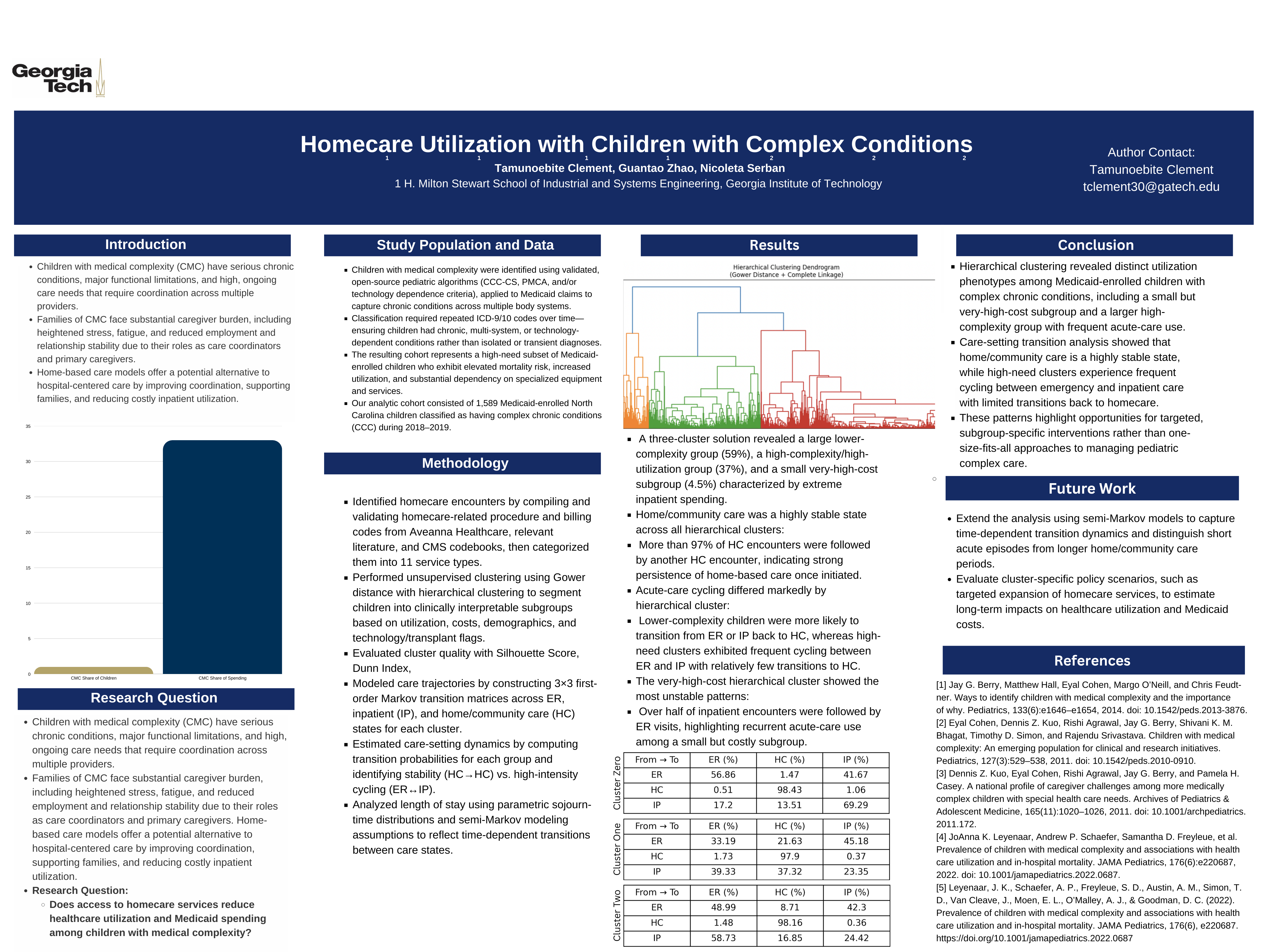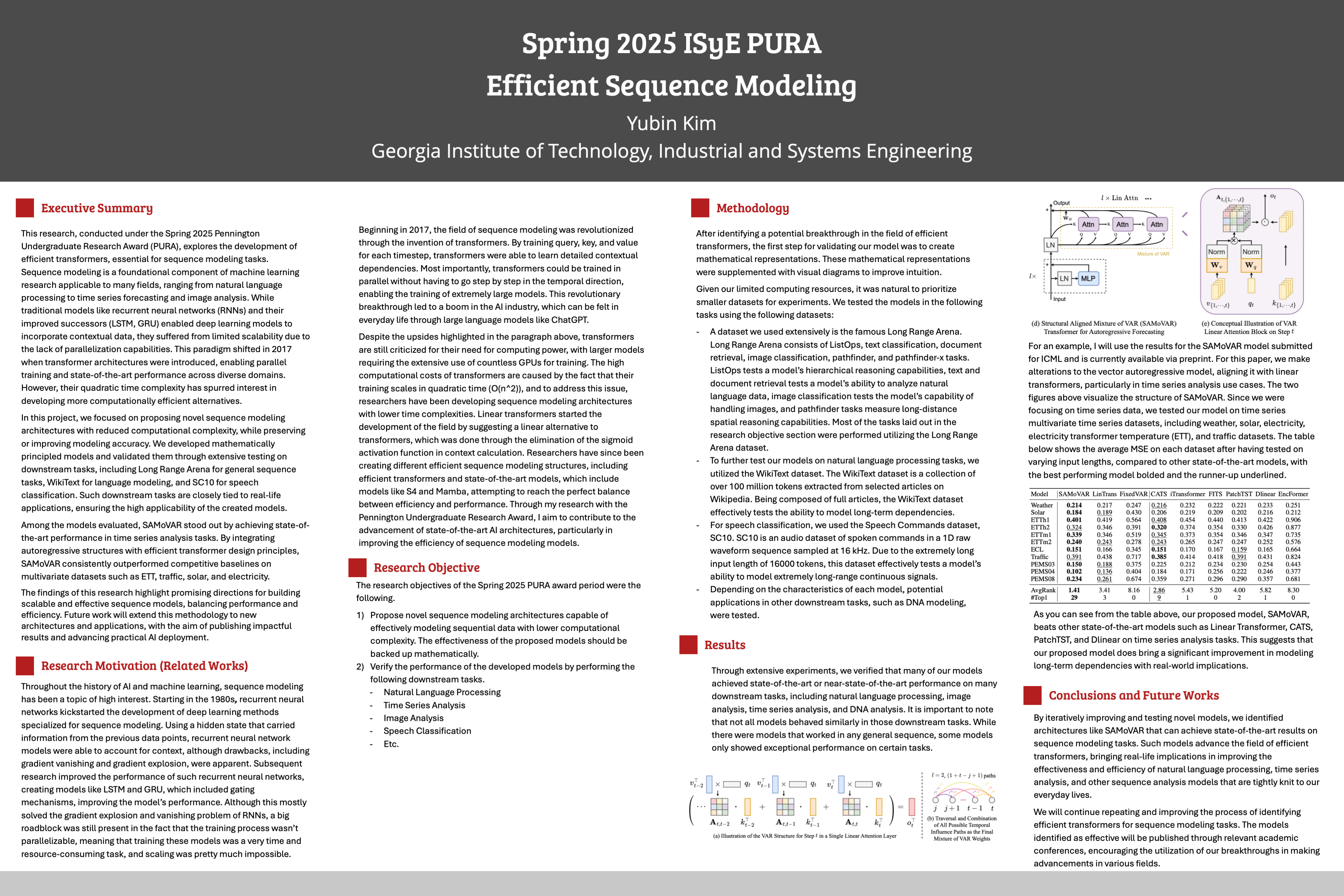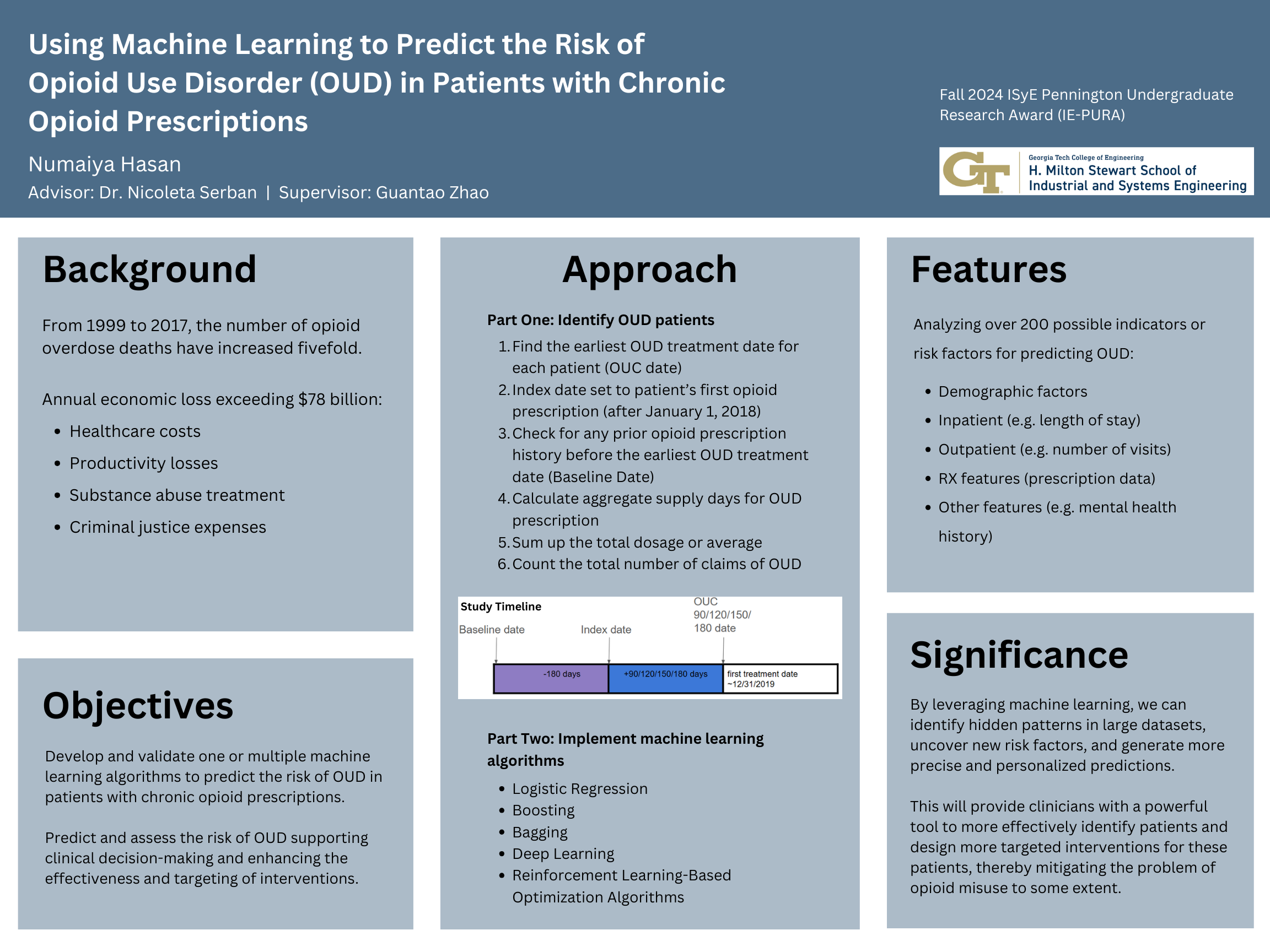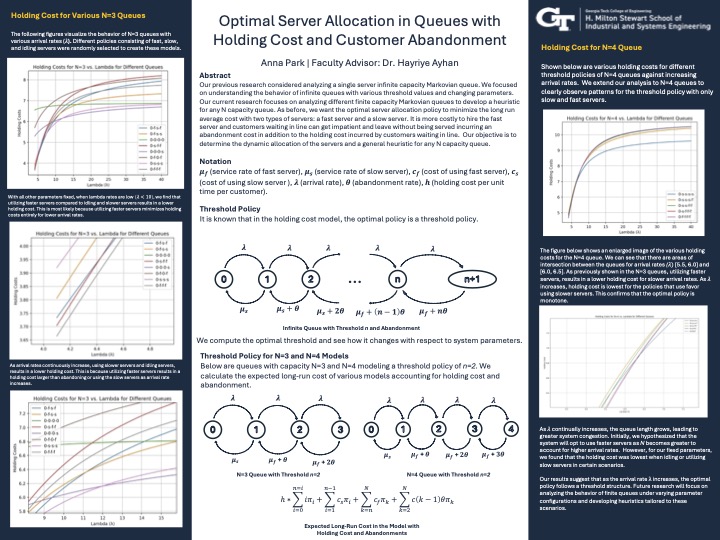Sealing the Signal: Predicting and Confirming Stablecoin De-Pegs through Behavioral and Liquidity Indicators
Stablecoins are designed to maintain a tight peg to a target asset, typically the U.S. dollar. However, deviations (“de-pegs”) occur in practice and can propagate systemic risk throughout crypto markets. This study investigates whether de-peg events can be predicted using a combination of trade volume and Google Trends search volume. We develop and test three anomaly-based detection…
Parallel and GPU-Accelerated Branch and Bound Solving Algorithms for Sparse Logistic Regression
Sparse logistic regression plays a central role in scientific and industrial applications where both predictive accuracy and interpretability are required. However, enforcing exact sparsity through an ℓ₀ constraint leads to a challenging combinatorial optimization problem. Branch and bound frameworks provide a principled way to obtain globally optimal sparse models, but their performance is…
Homecare Utilization Patterns Among Children with Complex Chronic Conditions in North Carolina
This study examines how homecare services relate to healthcare use and costs among children with medical complexity (CMC) enrolled in North Carolina Medicaid. CMC are a small but high-need pediatric group with serious chronic conditions, functional limitations, and heavy reliance on coordinated care. Their families face substantial caregiver burden, and many health systems are exploring home-…
Predicting Pediatric Surgery Duration For Children’s Health
Operating room (OR) scheduling in pediatric hospitals is challenging due to the high variability in surgery durations and the high cost of OR time. Even a small prediction error can lead to significant inefficiencies: overestimation of case length leads to idle OR time, while underestimation causes delays and overtime. This research addresses the problem by developing a data-driven model to…
Efficient Sequence Modeling
This research, conducted under the Spring 2025 Pennington Undergraduate Research Award (PURA), explores the development of efficient transformers, essential for sequence modeling tasks. Sequence modeling is a foundational component of machine learning research applicable to many fields, ranging from natural language processing to time series forecasting and image analysis. While traditional…
Using Simulation to Address Inequality and Variablity in Simulation
In 2022, the State of Georgia experienced significant voter wait-time issues throughout the election season. Since then, Georgia has been front and center in the national conversation about election integrity, as legislators try to adapt voting systems to ever-changing technologies and cultural norms. Georgia law generally allocates election resources based on the number of registered voters a…
Using Machine Learning to Predict the Risk of Opioid Use Disorder (OUD) in Patients with Chronic Opioid Prescriptions
In the United States, opioids are the mainstay of pain management and recent years have observed a spike in overdose-related deaths. Our study proposes to utilize machine learning algorithms on medical claims data to identify risk factors of opioid use disorder (OUD) and accurately predict an overdose event. We will implement five different algorithm models on over 200 possible risk factors to…
Optimal Server Allocation in Queues with Holding Cost and Customer Abandonment
Our research investigates optimal server allocation policies for finite capacity Markovian queues with two types of servers: fast and slow. Customers waiting in these queues incur holding costs, and those who abandon the queue impose abandonment costs. Our objective is to minimize the long-run average cost by determining the dynamic allocation of servers and developing a heuristic that…
Investigating Causes, Demographic Characteristics, and Prevalence of Diabetes the United States
Diabetes is a growing concern among youth and young adults, particularly in the where the prevalence of both Type 1 Diabetes Mellitus (T1DM) and Type 2 Diabetes Mellitus (T2DM) is rapidly increasing. This study proposes a retrospective longitudinal analysis using Medicaid claims data to explore the causes and effects of diabetes, identify key demographic characteristics, and analyze…
